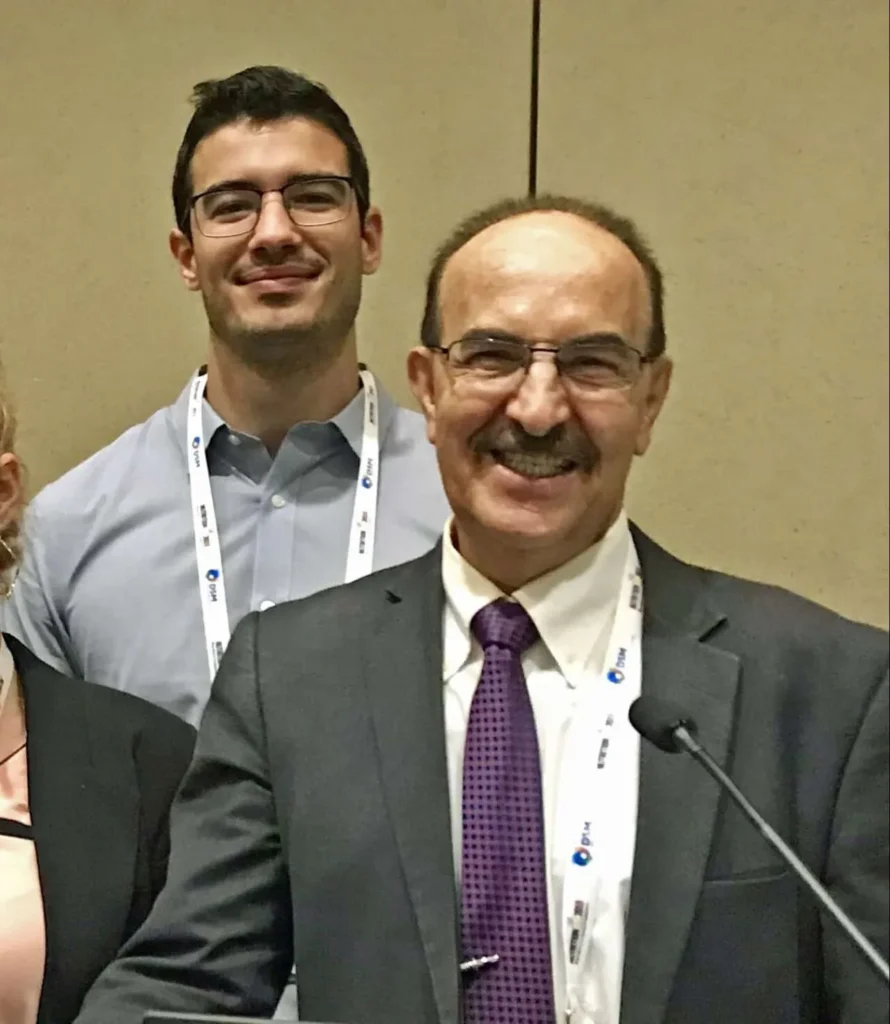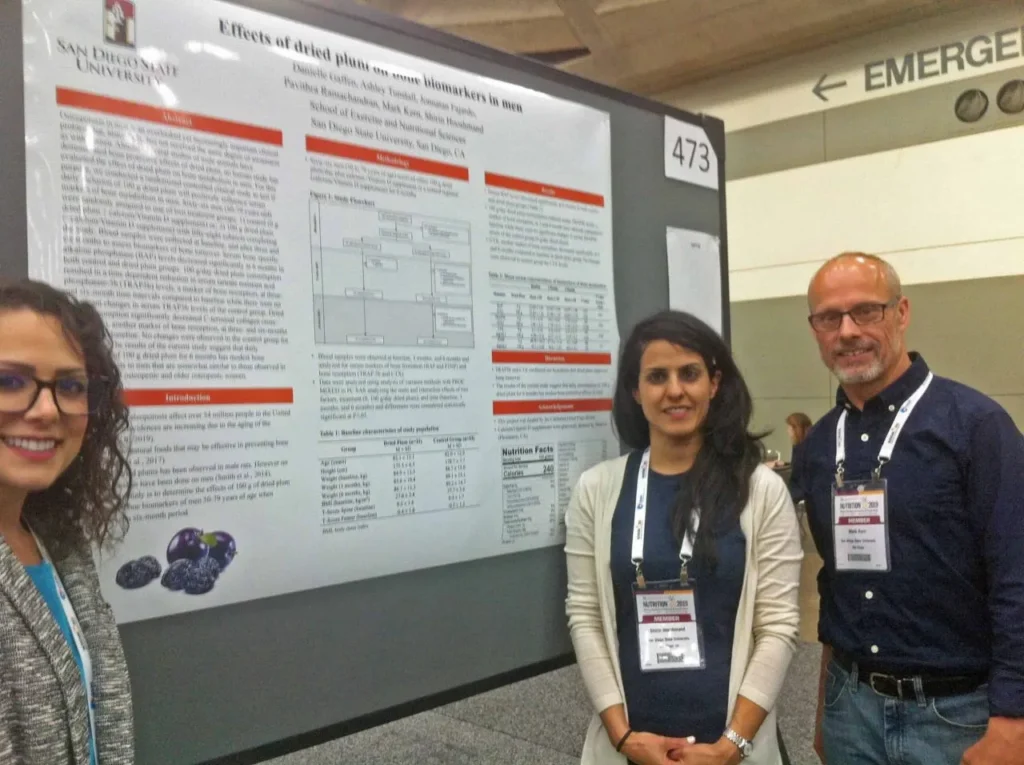Prune Research at Nutrition 2019
The meeting of the American Society for Nutrition June 8-11, Baltimore, MD
 Research findings from five California Prune Board supported projects (through funding or providing product) were presented during Nutrition 2019 “Where the best in science and health meet.” Approximately 1,600 presentations of original research included hot topics on microbiome research (“You are what your microbes eat”), personalized nutrition (wearable technology), and nutrition and the aging brain (dietary patterns).
Research findings from five California Prune Board supported projects (through funding or providing product) were presented during Nutrition 2019 “Where the best in science and health meet.” Approximately 1,600 presentations of original research included hot topics on microbiome research (“You are what your microbes eat”), personalized nutrition (wearable technology), and nutrition and the aging brain (dietary patterns).
Bahram Arjmandi, PhD, RD, Florida State University, presented a short summary of his past animal research “Insight into Bone Protective Mechanisms of Dried Plum Using an Ovariectomized Rat Model” in which the loss of bone density was prevented.
In addition, Dr. Arjmandi’s poster on the 12-month USDA study described early data on “The Short-Term Effect of Dried Plums (100 g or 50 g) on Inflammation and Indices of Bone Health in Osteopenic Men.” At the 3-month timeline, both doses appear to contribute to increases in bone formation, but a longer duration is needed to evaluate the effect on bone quality.
 Shirin Hooshmand, PhD, RD, and Mark Kern, PhD, RD, San Diego State University, poster described 6-month interim data on “Effects of Dried Plum on Bone Biomarkers in Men.” Results suggest that daily consumption of 100 g dried plum for 6 months has modest bone protective effects in men similar to those observed in postmenopausal and older osteopenic women. Data from the full 12-month intervention will be analyzed this summer.
Shirin Hooshmand, PhD, RD, and Mark Kern, PhD, RD, San Diego State University, poster described 6-month interim data on “Effects of Dried Plum on Bone Biomarkers in Men.” Results suggest that daily consumption of 100 g dried plum for 6 months has modest bone protective effects in men similar to those observed in postmenopausal and older osteopenic women. Data from the full 12-month intervention will be analyzed this summer.
Brenda Smith, PhD, Oklahoma State University, poster described the “Contribution of Carbohydrates and Polyphenols to Dried Plum’s Prebiotic Activity” which investigated the contribution of these components on weight gain, body composition and effects on the gut. Although the prebiotic effects differed, both the carbohydrate and polyphenol components contributed to prunes’ ability to lessen weight gain and reverse bone loss in a hormone deficient animal model.
Penny Kris-Etherton, PhD, RD, Pennsylvania State University (in collaboration with the International Nut and Dried Fruit Council) poster “Dried Fruit and Vascular Health: A Randomized Crossover Trial” described the effect of consuming ¾ cup/day of mixed dried fruits (prunes, raisins, dates, figs) compared to a calorie- and carbohydrate-matched snack on vascular health in adults at risk for cardiometabolic disease. Although eating the mixture of dried fruits for 4 weeks did not affect systolic blood pressure or measures of arterial stiffness compared to the carbohydrate-matched snack, the researchers are conducting subset analysis for further insight.